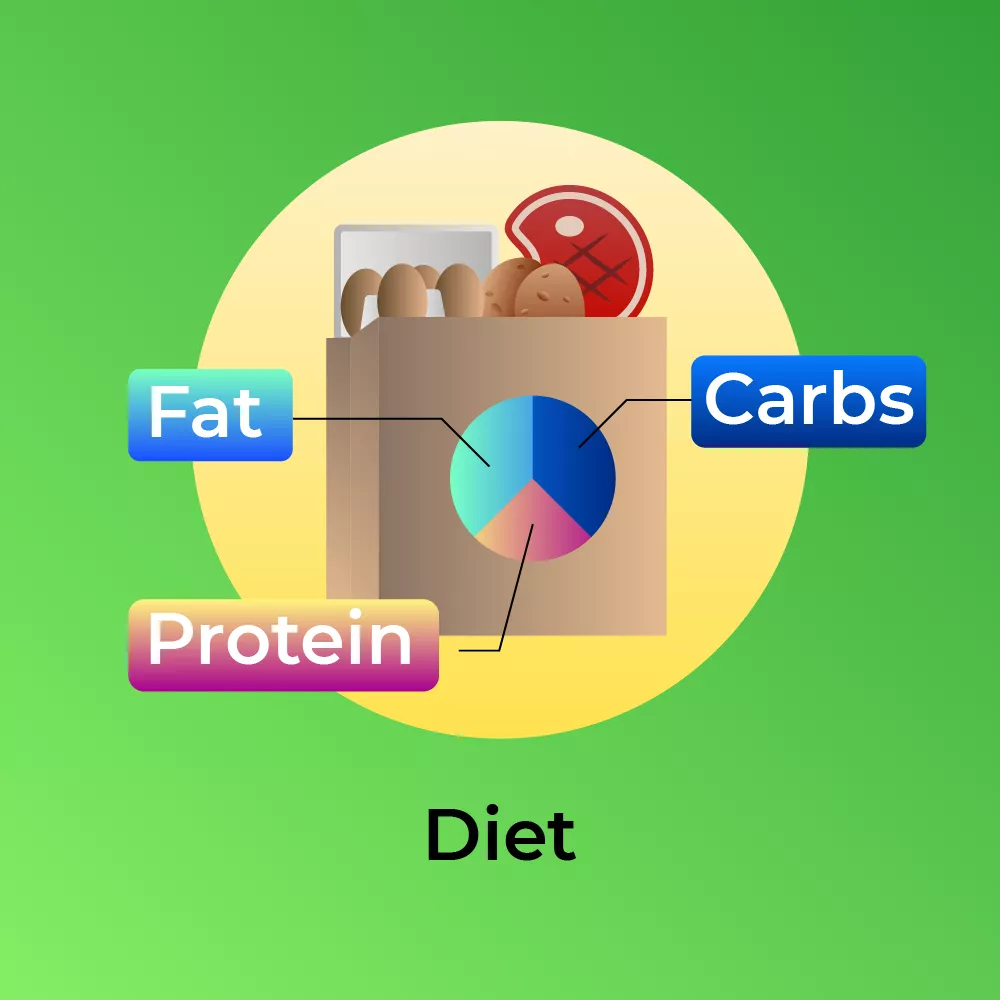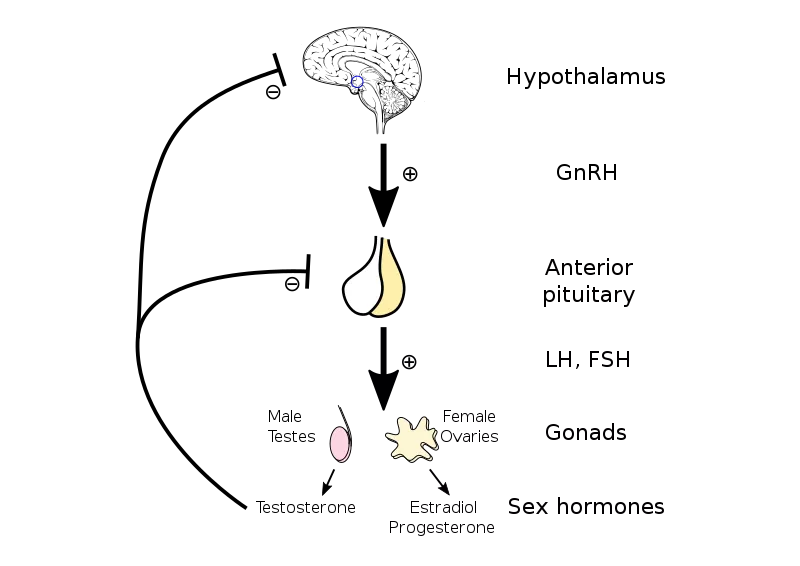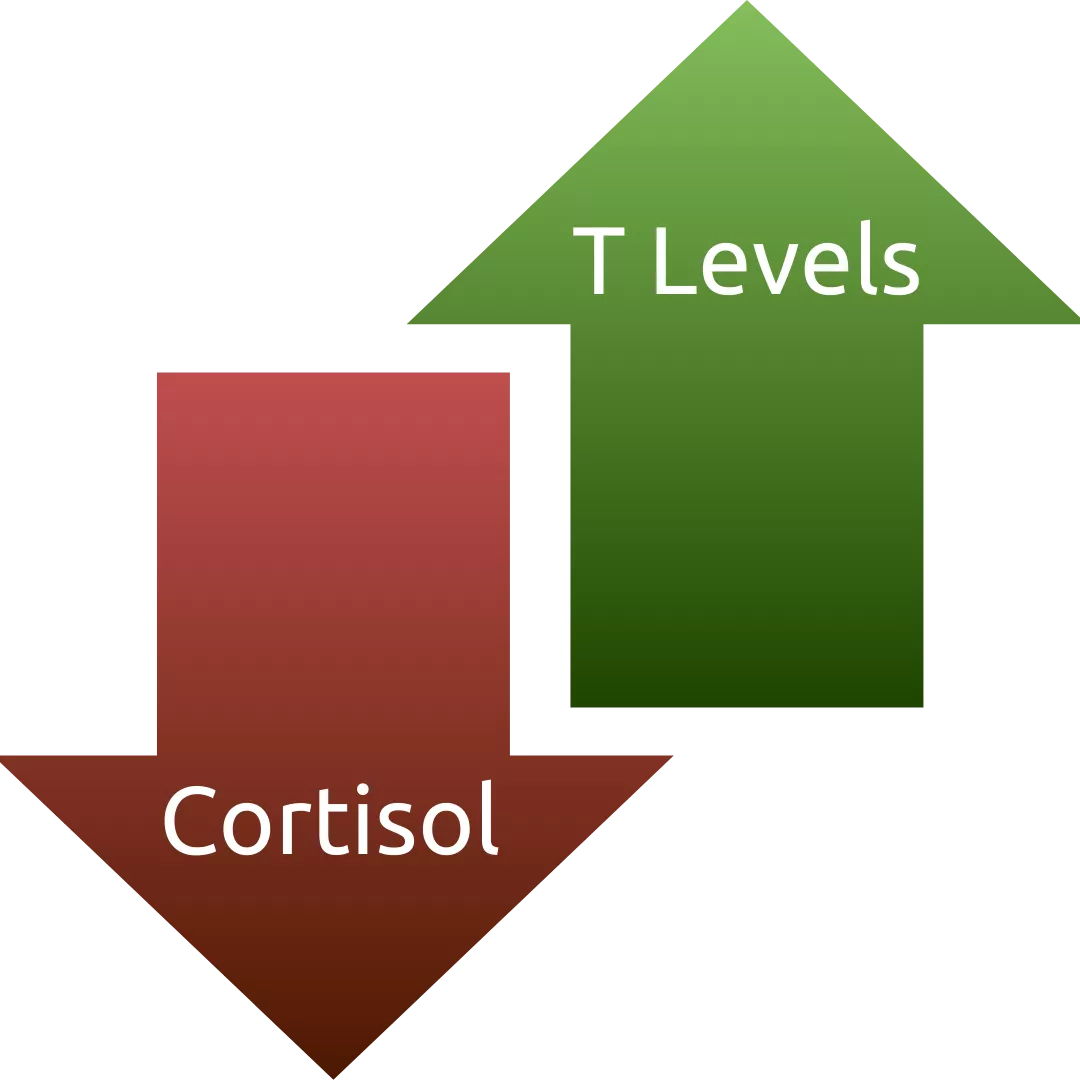The Ultimate Testosterone Diet

If you’re serious about naturally increasing your testosterone, you NEED to focus on your diet.
Why?
Because the building blocks of testosterone are literally formed by the food you eat.
If you don’t eat right, nothing else you do for increasing T-levels will matter.
This is The Testosterone Diet and it’s your complete guide on how to eat in a way that supports optimal T-levels for years to come.
Let’s do this.
p.s. Use this guide in combination with the grocery list pdf
Prioritizing Your Testosterone Diet
The goal here is to help you learn how to optimize your endocrine health by making the right food choices. To do that, you need to understand five key points:
- How energy balance affects testosterone levels
- How micronutrient levels affect testosterone levels
- How dietary fat intake affects testosterone levels
- How carbohydrate intake affects testosterone levels
- How protein intake affects testosterone levels
Once you know how to optimize these five areas, you can move towards eating in a healthy and enjoyable way yet still gives you the physical results you want.
A Quick Primer On How Testosterone Is Produced
Before diving into the nitty-gritty, it is important to understand how testosterone is produced in the first place.
T production is a highly complex process, but I’ll go over a simplified version below to help you understand the main points.
Step 1 - The process begins in the brain when the hypothalamus, a region of the forebrain, releases GnRH (gonadotropin-releasing hormone).
Step 2 - GnRH enters the pituitary gland, at the brain’s base, and stimulates LH (luteinizing hormone) and FSH (follicle-stimulating hormone) production.
Step 3 - Upon secretion, LH and FSH make their way towards the testes.
Step 4 - In the testes, LH and FSH enter the testicular Leydig cells.
Step 5 - LH triggers the enzymes that shape cholesterol molecules into testosterone, and FSH facilitates the production of sperm.

Each of these steps involves a series of hormonal interactions, which, in turn, require a variety of nutrients to complete. A lot of these necessary nutrients can only be acquired through your diet.
Key Takeaway
The nutrients your body needs to produce testosterone are acquired through the foods you eat.
How Energy Balance Affects Testosterone
Energy balance is the relationship between the number of calories you eat and the number of calories you burn:
Energy Balance = Calories Consumed - Calories Burnt
Energy balance determines fluctuations in your body weight.
Being in a state of negative energy balance (aka a calorie deficit) means eating fewer calories than you burn, which results in weight loss.
Being in a positive energy balance (aka a calorie surplus) means eating more calories than you burn, which results in weight gain.
The relationship between energy balance and testosterone is better explained through the lens of how body fat affects testosterone levels.
How Body Fat Affects Testosterone
Body fat and testosterone levels hold an inverse relationship:
Higher levels of body fat are associated with lower levels of testosterone and vice versa (1).
Why is this the case?
Well, it’s because body fat produces an enzyme called aromatase (2), which converts testosterone into the female sex hormone, estrogen (3).
Men with low levels of body fat have low aromatase levels, which allows more testosterone to remain unconverted into estrogen (4, 5, 6, 7).
Overweight and/or obese men, on the other hand, have high levels of aromatase and therefore elevated estrogen levels as well (8).
If you’re currently overweight (or skinny-fat), then getting in the range of sub-15% body fat levels is the one thing that will have the most significant positive impact on your T.
The golden rule of fat-loss is to consume at a negative energy balance.
A negative energy balance can lower testosterone levels in the short term (9), but this drop is immediately erased once calorie intake is brought back up to maintenance (10).
To determine how many calories you should be eating, go through this cheat sheet that I put together specifically for this blog post.
Key Takeaway
The leaner you are, the more testosterone your body will naturally be able to produce.
RELATED: Intermittent Fasting for Rapid Fat-Loss & Anabolic Spikes
How Macronutrients Affect Testosterone
Macronutrients provide the source of all calories. They include:
- Dietary Fat
- Carbohydrates
- Protein
Each macronutrient influences testosterone differently. Let’s break each of these down.
How Dietary Fat Intake Affects Testosterone Levels
Testosterone is literally made out of dietary cholesterol (9).
This makes dietary fat intake the most critical component of testosterone nutrition.
When figuring out how to fit fats into your diet, there are two factors to consider:
- The total amount of fat in your diet.
- The source that this fat is coming from.
How much fat should you eat to optimize T?
The Institute of Medicine recommends adults to get 20-35% of their daily calories from fats (10)
For the average 185 lb guy who eats 2000 calories a day, this means anywhere from 45-75 grams of fat per day.
That’s all good and well.
But what does this recommendation mean for me:
I’m 6 feet tall, weigh 185 lbs, and lift weights anywhere from 3-6 hours per week. I have about 15-20 pounds more muscle than the average guy of my height and weight. As a result, I also need more calories to sustain my lean body mass, around 2750 to be precise.
If I were to apply the Institute of Medicine recommendation, that comes out to 60-106 grams of fat per day.
This is way too high, and my body needs nowhere near 106 grams of dietary fat.
The problem with the recommendation from IoM is that it doesn’t account for body composition differences.
Whether you have 10% body fat or 35% body fat, if your calorie intake is the same, your fat intake recommendation would also be the same.
This is why I like to make the recommendation based off of the nutritional research performed by Mike Matthews:
Consume 0.3 grams of fat per pound of lean body mass.
This is a solid recommendation that accounts for differences in weight, body fat, and lean muscle mass.
I’m at about 10% body fat, and using the above recommendation, my dietary fat intake comes out at around 50 grams (0.91850.3).
How the different types of fat affect testosterone
Fats come in a variety of forms, each varying in its effects on testosterone:
- Polyunsaturated fats are found in foods like soybean oil, corn oil, sunflower oil, and some fatty fish.
- Monounsaturated fats are found in foods like red meat, nuts, avocados, and olive oil.
- Saturated fats are found in foods like fatty beef, lamb, pork, butter, egg yolks, and whole milk.
- Trans fats are mostly artificial and created in an industrial process. They are found in baked goods, fried foods, potato chips, and margarine. Try and avoid trans fats for the most part.
The ratio between these different types of fat in your diet is what makes all the difference.
Scientists at the Centre of Sports Medicine conducted a study (11) to analyze the influence of dietary nutrients on testosterone. They found that saturated and monounsaturated fat intake were the strongest predictors of T levels. Polyunsaturated fat intake, on the other hand, was associated with lower testosterone levels.
Another study (12) mirrors these results :
- 30 male subjects were switched from a diet providing 40% of calories from fat to a diet providing 25% of calories from fat.
- At the end of 6 weeks, the subjects had about 15% lower T levels.
Mind you, a 15% drop is not much, but it proves the positive correlation between fat intake and testosterone.
The above data is consistent with vegan and vegetarian studies.
Vegans/vegetarians tend to have low amounts of saturated fats in their diet. As a result, they also have lower testosterone levels compared to meat-eaters (13)(14)(15).
At this point, some of you might be wondering:
“But isn’t cholesterol bad for you? Isn’t saturated fat intake associated with heart conditions?”
The answer to these questions is more complicated than a simple yes or no.
The in’s and out’s of how cholesterol affects the body are beyond this article’s scope, but overall, just know that research has debunked many of the commonly held beliefs about cholesterol. It is not as bad as we once thought.
And as far as saturated fat is concerned, research (16) has found no correlation between its intake and heart disease.
Key Takeaway
Aim to consume 0.3 grams of dietary fat per pound of lean body mass from mostly monounsaturated and saturated sources.
How Carbohydrates Affects Testosterone
Low carb diets have gained a lot of popularity for their ability to induce fast weight-loss.
Just know that most weight lost during the early stages of a low-carb diet is mostly in the form of water weight.
The only thing that matters for weight-loss is energy balance, as we discussed above.
Carbohydrate intake is a critical component of T production.
A study (17) conducted by researchers at the University of Northern Carolina found that a low-carbohydrate diet decreased testosterone levels when combined with regular exercise.
Another study (18) mirrors these results.
Carbs are your body’s preferred energy source, and not getting an adequate amount of them means putting your body under stress in the form of elevated cortisol levels (19).
Elevated cortisol levels compromise your body’s ability to produce testosterone (20).
In other words:
Higher Cortisol Levels = Lower Testosterone Levels

Recall that GnRH (gonadotropin-releasing hormone) is what triggers the production of testosterone.
GnRH is directly regulated by circulating glucose levels.
When there’s an adequate amount of glucose running through our blood, muscles, and brain, the hypothalamus releases more GnRH, and the body synthesizes more testosterone. Low glucose triggers the opposite effect (21).
A lower carb intake means lower blood glucose.
Higher blood glucose levels also result in higher insulin levels.
Insulin (in the right amounts) has been shown to reduce muscle breakdown and create a more anabolic environment conducive to muscle growth (23).
All-in-all:
Low-carb diets lead to lower testosterone levels.
Let’s take a look at the results from a study (22) published in the European Journal of Applied Physiology:
- Subjects were divided into two groups.
- Both groups were tested for free testosterone to cortisol (fTC) ratio before the study began.
- Group 1 ate 60% of daily calories from carbs.
- Group 2 ate 30% of daily calories from carbs.
- Subjects from both groups performed three consecutive days of training.
- On the fourth day, group 2 had a significantly lower fTC ratio (-43%), while group 1 maintained their fTC ratio.
In another study (24), researchers looked at how high-carb and low-carb diets affected exercise-induced muscle damage, strength recovery, and whole-body protein metabolism after a challenging workout.
The group on a low carb diet ate 225 grams of carbs (which isn’t really low) while the group on the high carb diet ate 353 grams of carbs.
Results revealed that the subjects consuming fewer carbs lost more strength, had a slower recovery, and had slower muscle growth.
In yet another study (25), researchers had their subjects depleted of glucose and then put on a high or low carb diet for 2 days, followed by a strenuous leg workout.
The subjects on the low carb diet had higher protein breakdown rates and lower rates of protein synthesis, i.e., less muscle growth than their high-carb counterparts.
The research is abundantly detailed on this:
Carbs are an essential component of a testosterone-boosting diet.
The Different Types of Carbs & How They Affect T
Like with fats, carbs come in different forms. How your body responds to them depends on their type.
There are two types of carbohydrates:
- Simple Carbs
- Complex Carbs
Simple carbs include stuff like candy, soda, and white bread. Upon consumption, they are instantly absorbed in the bloodstream and quickly spike insulin levels.
Generally speaking, a spike in blood sugar leads to a drop in testosterone (26). Rapidly fluctuating blood sugar levels also lead to energy crashes and fat gain.
There is a time, however, when it can be beneficial for you to experience a spike in blood sugar:
After completing a heavy workout, for example, when muscle glycogen has been depleted. If you eat simple carbs during this time, they are more likely to replenish your muscles than to be taken up as fat.
Complex carbs include stuff like kidney beans, starchy vegetables, and whole-grain oatmeal. They are generally considered “healthy”, but as you’ve learned, it depends on the context.
When you’re worn out after a workout and your muscles are crying out to be replenished, complex carbs won’t do much to aid recovery.
The fiber in whole, complex carbs takes time to be broken down and enter the bloodstream.
For a more in-depth look at how different carbs affect your body, check out the Glycemic Index.
The GI classifies foods based on how quickly they enter the bloodstream and spike blood sugar.
Key Takeaway
Carbohydrates support testosterone and are also important for the regulation of muscle growth, energy, and mood. Stick with consuming carbs from a complex source, unless it’s around workouts.
How Protein Intake Affects Testosterone Production
Protein has enjoyed a steady rise to prominence thanks to the bodybuilding and fitness communities.
The notion being that a higher protein intake means a faster rate of muscle growth.
The flaw in this thinking is that protein does not actually stimulate muscle growth.
Lifting weights stimulates muscle growth.
Protein just has to be there to allow the muscle to repair.
And get this:
Protein is the least important macronutrient for T production.
This might come as a shock, but a high protein diet can actually be detrimental towards T.
With a fixed number of calories, increased consumption of protein means a decreased intake of fat and carbohydrates, both of which are more important for testosterone.
To provide all of this with a scientific context, let’s take a look at the results from a study (27) that aimed to observe the influence of protein/carbohydrate ratio on testosterone:
- One group of subjects was put on a high-protein, low-carb diet.
- The second group was put on a high-carb, low-protein diet.
- Calories and fat were equal across both groups.
- At the end of ten days, the group on a high-protein, low-carb diet had 26% lower total testosterone levels.
- The group on a high-carb, low-protein diet had 40% lower SHBG concentrations, meaning that more testosterone was allowed to remain in its free form.
- Furthermore, the group on a high-carb, low protein diet had 37% lower cortisol concentrations.
Does this mean that low-protein diets are the answer to higher testosterone levels?
Well, not quite.
It is important to observe the context of particular studies before jumping to any rash conclusions.
For example, the above study was done on only seven men.
This is way too small a sample size.
Also, the subjects were not put on any exercise program.
Another study (28) provides further insight towards how protein intake affects T:
- Data from the Massachusetts Male Aging Study was used to examine the relationship between dietary components and SHBG levels in 1552 males (aged 40-70 years) for whom these factors were known.
- Researchers concluded that low-protein diets lead to elevated SHBG levels and decreased testosterone activity.
More SHBG (sex hormone-binding globulin) means that less free testosterone is allowed to exert its influence.
So as you can see, the sweet spot very rarely lies on either end of an extreme.
The problem we face when trying to extrapolate recommendations from the research is that the above studies don’t actually get into the exact number of grams classified as ‘low protein’.
So, how much protein should you eat?
To answer this, I look towards the researcher and fitness coach, Eric Helms.
After analyzing and performing numerous studies, Helms recommends a protein intake between 0.8-1.3 grams per pound (1.8-2.8g/kg) of body weight.
As far as the source is concerned, try and get most of it from animal sources.
Protein is the final piece of the macronutrient puzzle.
Key Takeaway
Only after looking at the complete macronutrient profile, with fats, carbs, and protein included, can we move on to determining the quantities of each for optimal testosterone support.
How Micronutrients Affect Testosterone
Micronutrients are comprised of vitamins and minerals.
They are required by your body in small amounts but play a critical role in human development, well-being, and of course, T production.
Large portions of the US population are deficient in vitamins A, C, D, and E (35, 31, 74, and 67% respectively), calcium (39%), and magnesium (46%) (29).
Let’s look at how each of these factor in with the testosterone equation:
- Vitamin A is a powerful antioxidant. In a study of 155 twins, testosterone levels were seen to be positively correlated with vitamin A intake (30).
- Vitamin C is another powerful antioxidant that has been shown to protect the testes from oxidative stress, and therefore preserve T levels (31).
- Vitamin D benefits us in many ways, from strengthening our bones to improving our mood. As far as T levels are concerned, men supplementing with vitamin D tend to have significantly higher testosterone than men who don’t (32).
- Vitamin E is also an antioxidant. Men supplementing with vitamin E have been shown to have higher T levels (33).
- Calcium is important for bone health. One study showed that the increase in testosterone is more significant after lifting weights when accompanied by calcium supplementation (34).
- Magnesium is a critical mineral that has many vital roles in the body. Studies have shown magnesium intake to hold a direct, positive relationship with testosterone production. (35).
Even if you’re not necessarily deficient in these vitamins and minerals, merely having sub-optimal levels of them will result in sub-optimal T levels.
Although possible, it can prove difficult to consume optimal amounts of these micronutrients through diet alone. This is where supplementation can help.
A No B.S. Guide to Testosterone Supplements
You can check out the ultimate guide to testosterone boosters for an extensive overview of this topic, but the bottom line is this:
Most test boosters available at your local GNC or supplement store will do next to nothing for your T-levels.
Also:
Natural test boosters are not the same as TRT (testosterone replacement therapy) or anabolic steroids. The latter methods actually involve putting exogenous hormones into your body. On the other hand, test boosters only provide your body with the raw materials to naturally stimulate T-production.
You need to view supplements as something to supplement your diet and lifestyle with. They should never be relied upon as the central focus of your efforts.
Companies spend big bucks to have you believe in a “magic pill” solution, but believe me when I say:
A Magic Pill Doesn’t Exist.
And even when it does (i.e., TRT/steroids), the negative repercussions far outweigh the benefits.
Here’s The Next Step
If you want a simple, no-bull, done-for-you grocery list of foods to eat to increase testosterone, then you will want this ebook:
Thanks for reading,
David, RN, CCRN

